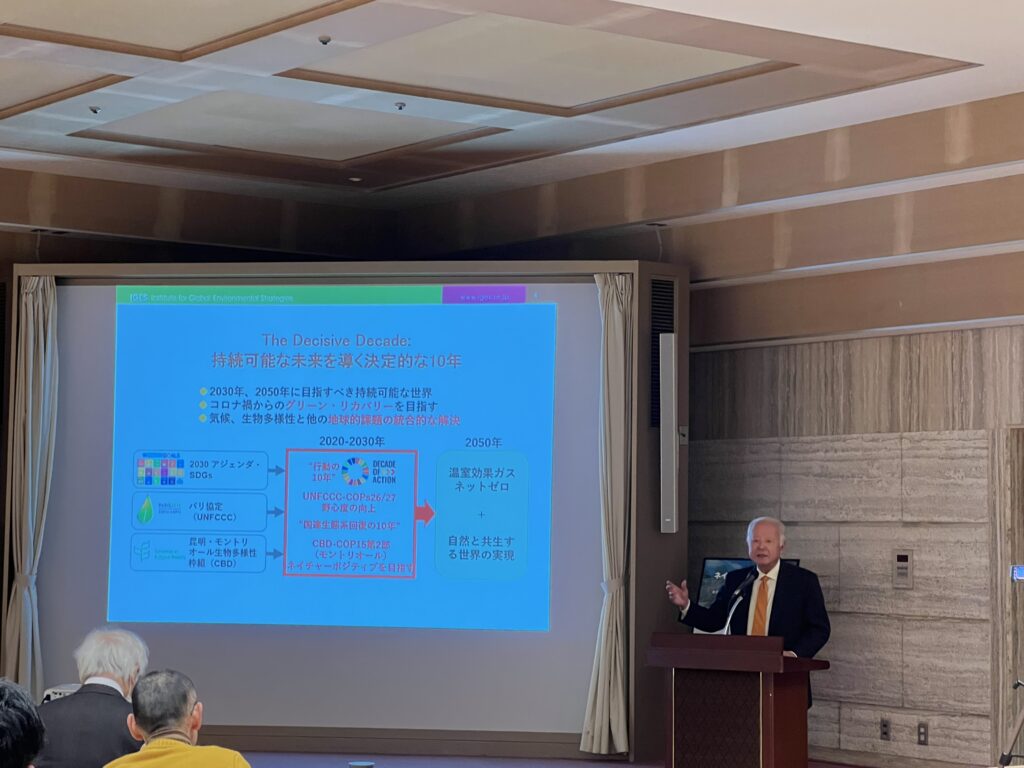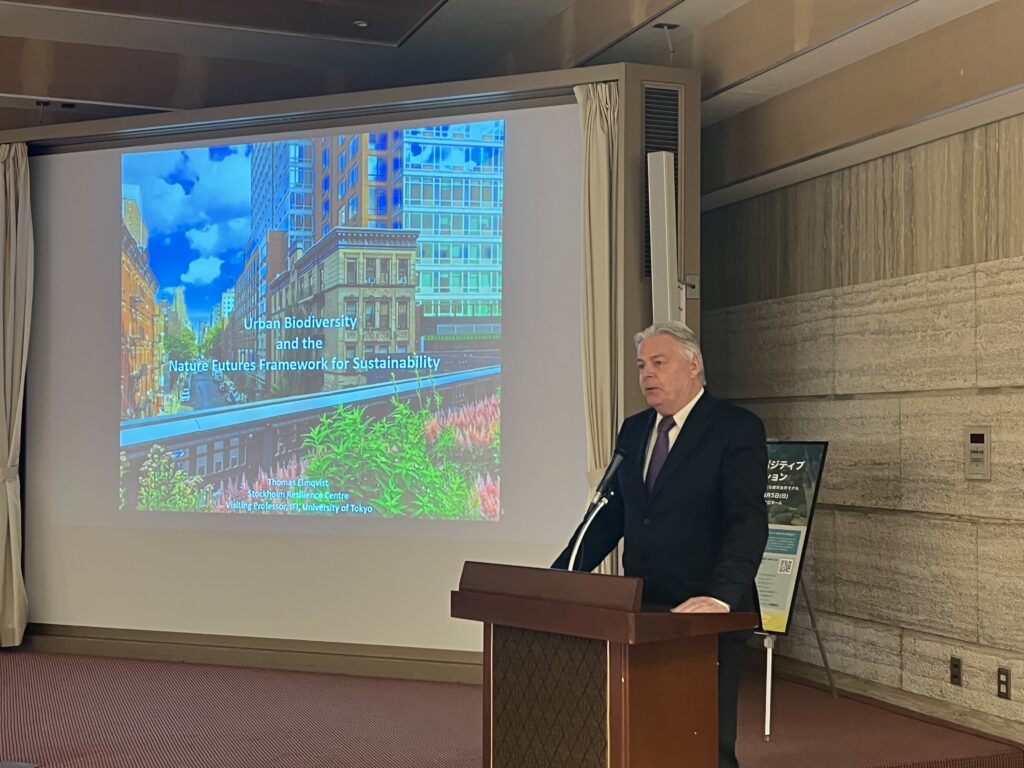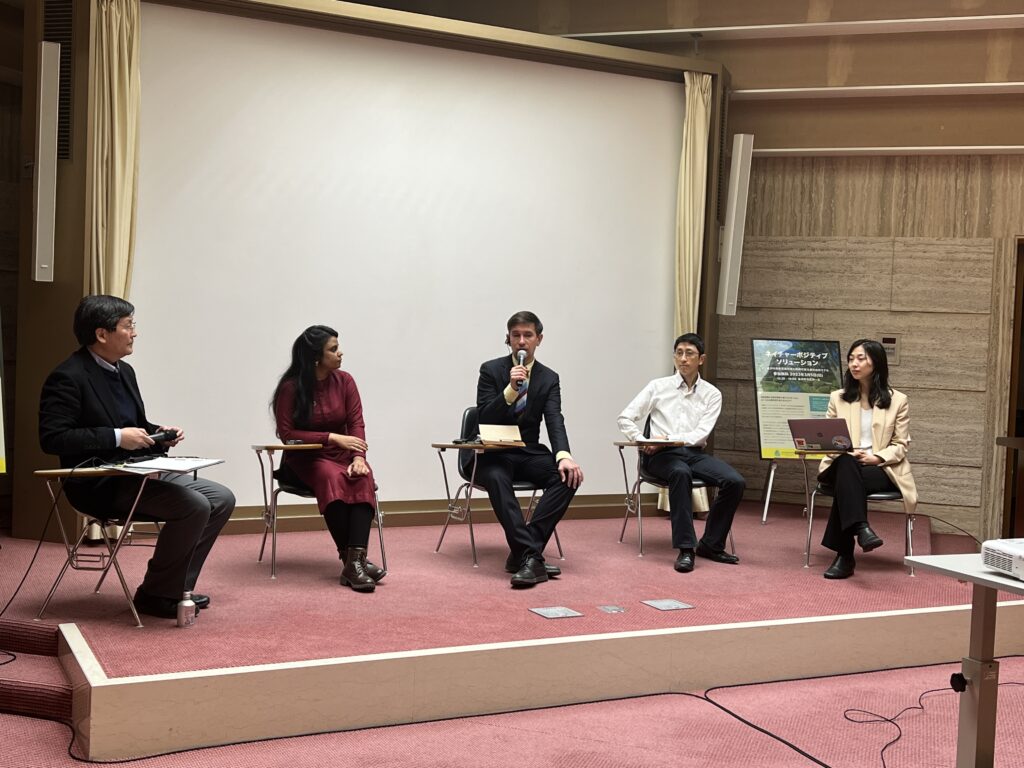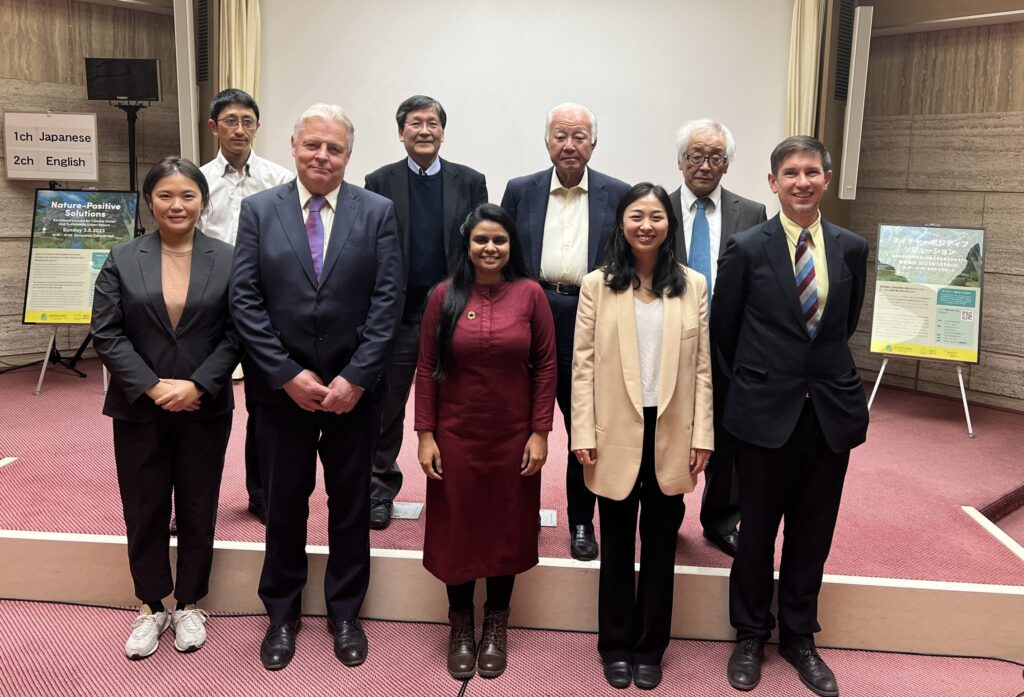On March 5, 2023, UNU-IAS OUIK hosted the symposium “”Nature Positive Solutions”: Kanazawa’s model for Climate Action and Sustainable Urban Nature” at the Kanazawa Bunka Hall. The symposium shared the outcomes of discussions at the 27th Conference of the Parties to the United Nations Framework Convention on Climate Change (UNFCCC COP27) in 2022 and the 15th Conference of the Parties to the Convention on Biological Diversity (CBD COP15), as well as domestic and international responses going forward. The participants also introduced Kanazawa’s urban nature benefits and efforts to combat climate change and realize sustainable cities, and discussed Nature Positive Solutions for the future generations.
 In opening remarks, UNU-IAS OUIK Director Tsunao Watanabe explained about the keyword “Nature Positive” (a new approach aiming at “restoring biodiversity” instead of “maintaining biodiversity”), which was the focus of attention at the 15th Conference of the Parties (COP15) to the Convention on Biological Diversity held last year. He also expressed his gratitude for the opportunity to hold such an international symposium this year, which marks the 15th anniversary of the establishment of OUIK.
In opening remarks, UNU-IAS OUIK Director Tsunao Watanabe explained about the keyword “Nature Positive” (a new approach aiming at “restoring biodiversity” instead of “maintaining biodiversity”), which was the focus of attention at the 15th Conference of the Parties (COP15) to the Convention on Biological Diversity held last year. He also expressed his gratitude for the opportunity to hold such an international symposium this year, which marks the 15th anniversary of the establishment of OUIK.
Mayor Takashi Murayama of Kanazawa City also gave a video message as a greeting. Mayor Murakami introduced Kanazawa’s “Zero Carbon City Declaration” and said, “I hope that it will contribute to climate change countermeasures and biocultural diversity and lead to the further development of environmental awareness among individuals and the further strengthening of effort”.
Kazuhiko Takeuchi, President of the Institute for Global Environmental Strategies (IGES), gave a presentation entitled “Global Agenda and Local Action,” explaining what proposals are currently being made and what actions are being taken in response to international issues such as climate change and biodiversity loss, along with examples of local initiatives. He further stated that since biodiversity, climate, and human society are closely interrelated, it is important to maximize co-benefits and avoid trade-offs, and that comprehensive governance is needed to put the interrelationships in place.

Dr. Thomas Elmqvist from the Stockholm Resilience Center, Stockholm University, shared his reflections on the concepts of sustainability and resilience in urban nature in his presentation titled “Emerging Trends in Urban Ecosystem Services.” He also introduced various initiatives in various countries as practical examples of building resilient cities.
In the discussion session that followed, the following four speakers first introduced their research activities and approach to environmental issues.
1 Dr. Himangana Gupta (UNU-IAS): “The Nexus Approach – Two landmark COPs carve out paths for climate-biodiversity synergy”
2 Dr. Juan Pastor-Ivars (UNU-IAS OUIK): “SUN Project and urban nature benefits”
3 Dr. Motofumi Marui (Kanazawa Institute of Technology): “Heat Island mitigation through urban nature”
4 Ms. Mana Saza (SWiTCH): “Action by Japanese Youth to create a wave for sustainability in Japan”
Tsunao Watanabe coordinated a discussion session on ” Nature-Positive Solutions for the future generations – How can we all work together for the same goal?”.
 In response to the question“What tips do you have for getting youth interested in environmental issues and participating in activities?”, Ms Saza answered, “We need to create an environment where people can learn about sustainability in a more accessible way. First of all, it is important for schools and local governments to provide education to teachers and to repeat the dialogue. In addition, it is also important to create indicators that show changes in order to promote behavioural change. I also encourage youth to talk with their friends and peers about the sustainability issues around them.”
In response to the question“What tips do you have for getting youth interested in environmental issues and participating in activities?”, Ms Saza answered, “We need to create an environment where people can learn about sustainability in a more accessible way. First of all, it is important for schools and local governments to provide education to teachers and to repeat the dialogue. In addition, it is also important to create indicators that show changes in order to promote behavioural change. I also encourage youth to talk with their friends and peers about the sustainability issues around them.”
Dr. Koji Nakamura, Professor Emeritus of Kanazawa University, said, “In rural areas, there is a wide range of issues related to climate change, such as ageing and depopulation, but I hope that we can promote open dialogue and encourage the youth in Japan.” in the closing remarks.





